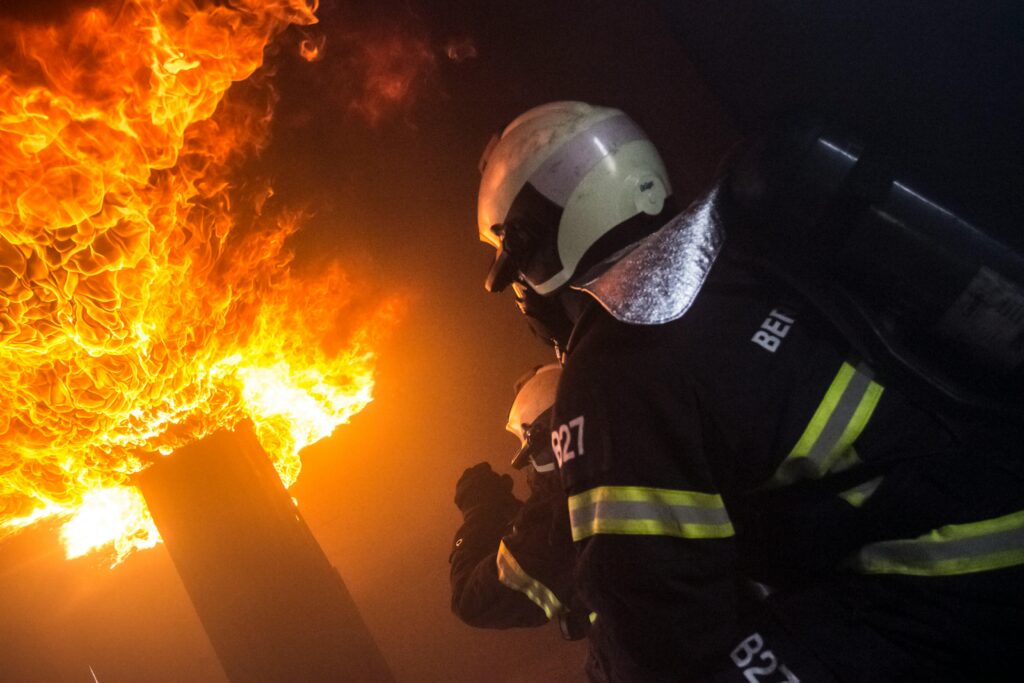Introduction: Preparing for the Unexpected
In an unpredictable world, disasters—natural or human-made—can strike without warning, causing widespread disruption. Disaster management is the key to mitigating risks, responding effectively, and rebuilding stronger communities. This vital field combines planning, coordination, and action to save lives and protect resources. As climate change and urbanization amplify risks, the demand for skilled disaster management professionals is surging. This article delves into the essence of disaster management, guiding you on how to become a professional and highlighting why Aime Connect is your trusted partner. By exploring the skills, opportunities, and learning paths, you’ll be equipped to make a meaningful impact. Let’s embark on this journey to create a safer, more resilient future.
Unraveling Disaster Management: What Does It Entail?
Disaster management involves preparing for, responding to, and recovering from emergencies like earthquakes, floods, or industrial accidents. It encompasses strategies to reduce risks, coordinate relief efforts, and restore normalcy. By integrating planning, resource allocation, and community engagement, it minimizes loss of life and property. For example, it includes early warning systems, evacuation plans, and post-disaster rehabilitation. Furthermore, it spans phases like mitigation, preparedness, response, and recovery. As disasters grow in frequency and intensity, professionals in this field play a critical role. By mastering disaster management, you contribute to building resilient societies, ensuring safety and stability in times of crisis.

Your Roadmap to Success: Becoming a Disaster Management Professional
Embarking on a career in disaster management requires a mix of education, practical experience, and passion for service. Begin with a degree or diploma in fields like environmental science, public administration, or emergency management. Next, gain hands-on experience through internships with NGOs or government agencies. Certifications in areas like crisis response or risk assessment enhance your credibility. Additionally, volunteering in disaster relief efforts builds practical skills and networks. Staying informed about global trends, such as climate adaptation, is essential. By combining formal education with real-world exposure, you can transition into roles like emergency planner or relief coordinator, making a tangible difference.
Arming Yourself: Essential Skills for Disaster Management
Success in disaster management demands a versatile skill set. Technical skills, such as knowledge of geographic information systems (GIS) or risk modeling, are crucial for planning. Additionally, understanding logistics ensures efficient resource distribution during crises. Soft skills like leadership and communication enable you to coordinate diverse teams and engage with affected communities. Moreover, critical thinking helps you make swift decisions under pressure. Adaptability and cultural sensitivity are vital, as disasters affect diverse populations. By cultivating these skills, you become a competent professional, ready to tackle complex challenges. Continuous learning keeps you prepared for evolving risks, ensuring your effectiveness in this dynamic field.
Your Learning Pathway: Recommended Disaster Management Courses
Aime Connect offers tailored courses to launch your disaster management career. Start with foundational programs covering risk assessment and emergency planning. Intermediate courses dive into topics like humanitarian logistics and climate resilience. For advanced learners, specialized programs on disaster recovery or urban risk management provide deep expertise. Each course blends theory with practical simulations, fostering real-world readiness. Furthermore, Aime Connect’s expert instructors mentor you through case studies and projects. These courses align with global standards, preparing you for certifications and roles. By enrolling, you access a structured learning path, empowering you to excel in disaster management with confidence.
Opening Doors: Job Scope and Placement Opportunities
The job market for disaster management professionals is expanding, driven by increasing global risks. Roles like emergency manager, risk analyst, or relief coordinator are in demand across government, NGOs, and private sectors. Additionally, international organizations like the UN seek experts for global initiatives. With experience, you can advance to leadership positions like disaster response director. Salaries are competitive, reflecting the field’s critical nature. Moreover, Aime Connect’s placement support connects you with top employers, boosting your career prospects. As disasters remain a global challenge, your skills will be highly valued, offering both stability and the chance to serve humanity.
Global Opportunities: Best Countries for Disaster Management Careers
Certain countries excel as hubs for disaster management professionals due to their proactive policies and frequent challenges. The United States leads with its advanced frameworks like FEMA, offering diverse roles. Japan, prone to earthquakes and tsunamis, invests heavily in disaster preparedness, creating opportunities. Similarly, Australia’s focus on bushfire and flood management drives demand. In Europe, the Netherlands excels in flood risk management, while India offers vast scope due to its diverse hazards. These countries provide robust training, competitive salaries, and global exposure. By pursuing a career in these regions, you gain expertise in cutting-edge practices, enhancing your professional growth.
Time and Mode: Duration and Best Learning Approach
The duration of disaster management courses depends on your goals and commitment. Foundational courses typically take 3-6 months, while comprehensive programs may span 1-2 years. Certifications require additional preparation but boost employability. Lifelong learning is key, as new risks emerge. Online learning offers flexibility, ideal for balancing studies with work. Conversely, offline courses provide immersive experiences through workshops and fieldwork. Aime Connect offers hybrid options, combining the best of both. Your dedication and chosen mode determine your progress. By partnering with Aime Connect, you ensure a tailored, effective learning journey that aligns with your aspirations.
Why Aime Connect Shines: Special Features for Your Growth
Aime Connect elevates your disaster management journey with standout features. Interactive simulations replicate real-world disaster scenarios, honing your skills. Additionally, personalized mentorship from industry experts guides you through complex topics. The platform’s global community forums foster collaboration and idea-sharing. Regular webinars keep you updated on emerging trends like climate adaptation. Furthermore, Aime Connect offers career counseling and placement support, ensuring a smooth transition to employment. Flexible schedules make learning accessible, fitting your lifestyle. By leveraging these features, you gain a competitive edge in disaster management. Explore more at https://aimeconnect.com and start your journey today.
Conclusion: Shape a Resilient Future with Disaster Management
Disaster management is a noble profession, empowering you to protect lives and rebuild communities. As global risks intensify, professionals in this field are more vital than ever. By acquiring essential skills, pursuing quality education, and staying adaptable, you can forge a rewarding career. Aime Connect supports you with expertly designed courses, mentorship, and career guidance, ensuring your success. Whether you aim to work locally or globally, the opportunities are vast. Take the first step toward a meaningful career today. Thank you for exploring this path with us. Sign up and enjoy free special features from Aime Education Portal at https://aimeconnect.com.



